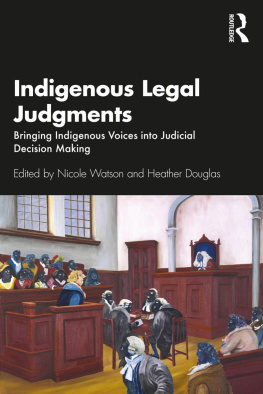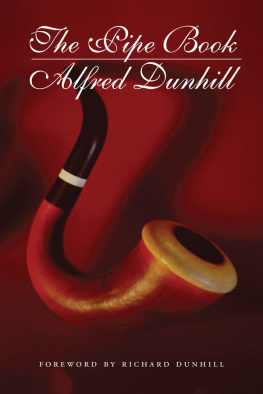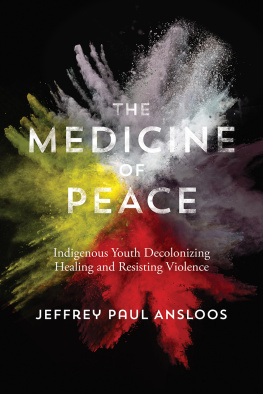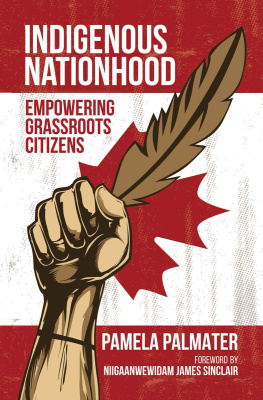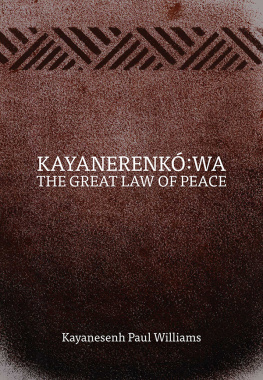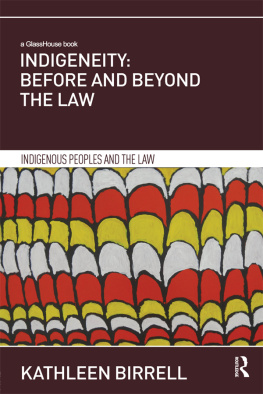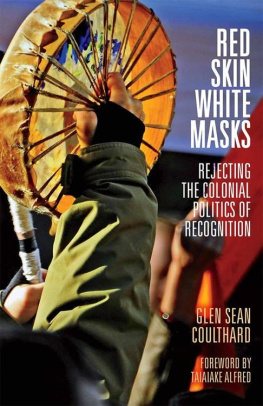THIS IS NOT A PEACE PIPE: TOWARDS A CRITICAL INDIGENOUS PHILOSOPHY
How can indigenous people best assert their legal and political distinc-tiveness? In This Is Not a Peace Pipe, Dale Turner explores indigenous intellectual culture in Canada and its relationship to, and within, the dominant Euro-American culture. He contends that indigenous intellectuals need to engage the legal and political discourses of the state, while respecting both indigenous philosophies and Western European intellectual traditions.
According to Turner, the intellectual conversation about the meaning of indigenous rights, sovereignty, and nationhood must begin by recognizing, first, that the discourses of the state have evolved with very little, if any, participation from indigenous peoples and, second, that there are unique ways of understanding the world embedded in indigenous communities. Furthermore, a division of intellectual labour must be invoked between indigenous philosophers who possess and practise indigenous forms of knowledge and those who have been educated in the universities and colleges of the Euro-American world. This latter group, Turner argues, must assert, protect, and defend the integrity of indigenous rights, sovereignty, and nationhood, as they are the ones able to speak the language of the dominant culture while being guided by their indigenous philosophies.
This Is Not a Peace Pipe is a ground-breaking work that will encourage ongoing debate among both Aboriginal and non-Aboriginal scholars by challenging common assumptions about how best to fight for recognition of the legal and political rights of indigenous peoples.
DALE TURNER is Associate Professor of Government and Native American Studies at Dartmouth College. He is a member of the Temagami First Nation in Northern Ontario.
DALE TURNER
This Is Not a Peace Pipe
Towards a Critical
Indigenous Philosophy
UNIVERSITY OF TORONTO PRESS
Toronto Buffalo London
University of Toronto Press Incorporated 2006
Toronto Buffalo London
Printed in Canada
Reprinted 2006 (Jul), (Dec), 2008
ISBN-13: 978-0-8020-8016-5 (cloth)
ISBN-10: 0-8020-8016-2 (cloth)
ISBN-13: 978-0-8020-3792-3 (paper)
ISBN-10: 0-8020-3792-5 (paper)

Printed on acid-free paper
Most of chapter 3 was published as Liberalisms Last Stand: Aboriginal Sovereignty and Minority Rights, in Aboriginal Rights and Self-Government: The Canadian and Mexican Experience in North American Perspective, ed. Curtis Cook and Jan D. Lindau (Montreal: McGill-Queens University Press, 2000). Much of the material for chapter 4 was originally published in Vision: Toward an Understanding of Aboriginal Sovereignty, in Canadian Political Philosophy: Contemporary Reflections, ed. Ronald Beiner and Wayne Norman (Toronto: Oxford University Press, 2000).
Library and Archives Canada Cataloguing in Publication
Turner, Dale A. (Dale Antony), 1960
This is not a peace pipe : towards a critical indigenous philosophy / Dale Turner.
Includes bibliographical references and index.
ISBN 0-8020-8016-2 (bound)
ISBN 0-8020-3792-5 (pbk.)
1. Native peoples Legal status, laws, etc. Canada. 2. Native peoples Civil rights Canada. 3. Native philosophy Canada. 4. Native peoples Canada Intellectual life. 5. Native peoples Canada Politics and government. 6. Native peoples Canada Government relations. I. Title.
E92.T87 2006 323.1197071 C2005-905395-X
This book has been published with the help of a grant from the Canadian Federation for the Humanities and Social Sciences, through the Aid to Scholarly Publications Programme, using funds provided by the Social Sciences and Humanities Research Council of Canada.
University of Toronto Press acknowledges the financial assistance to its publishing program of the Canada Council for the Arts and the Ontario Arts Council.
University of Toronto Press acknowledges the financial support for its publishing activities of the Government of Canada through the Book Publishing Industry Development Program (BPIDP).
For Allie ...
Contents
Acknowledgments
I cannot possibly thank everyone who played a part in helping me create this book, but I must mention a few.
My first debt of gratitude must go to Professor James Tully. His philosophical work, wisdom, and friendship are gifts that I value greatly. The writings and lectures of Charles Taylor have been, and continue to be, important to my thinking.
Most of this book was written in the Native American Studies Program and the Government Department at Dartmouth College. I am grateful for the support of my colleagues in Native American Studies Colin Calloway, Sergei Kan, the late Elaine Jahner, Vera Palmer, Dennis Runnels, Darren Ranco, Mishuana Goeman, Bruce Duthu, and Chris Jocks who have critically engaged my work while enduring Anishnabi humour. Colin Calloways work ethic is exemplary and he continues to be a role model for me. The wisdom and friendship of Vera Palmer and Dan Runnels have nurtured my intellectual and spiritual well-being, and without their support this book might not have been written.
Special thanks to my Government colleagues, both present and past, especially Lynn Mather, Lucas Swaine, Nelson Kasfir, Allan Stam, Linda Fowler, Bill Wohlforth, and Angelia Means. Im especially thankful to Catherine Shapiro for making me feel so welcome when I first came to Dartmouth.
I would like to thank the John Sloan Dickey Center for International Understanding for their sponsorship of a manuscript review seminar that brought Melissa Williams and David Kahane to Dartmouth as external reviewers. Thanks to Walter Sinnott-Armstrong, Angie Means, David Peritz, Lucas Swaine, and Christianne Wohlforth for their participation and thoughtful comments.
Bea Medicine, Marlene Brant Castellano, and David Hawkes have all had a strong influence on my thinking and helped get this project going.
Of course, I must mention the importance of my family to me the Larondes, Blakes, Moores, Roys, and Pridhams. Allan and Sandra Laronde have been my best friends since childhood and I can never go too long without hearing from them. My immediate family Terry, Ron, Ruth, and Lana have had a positive influence on my life who would have guessed? William made me laugh when I needed it most, and he continues to be in my thoughts.
Finally, at the very centre of my life are Stephanie, Benjamin, and Dylan. They give me strength, love, and most of all, happiness.
the passing of the pipe
passing the pipe
situated you
(little did we know
you were legislating our humanity)
smoking the pipe
unearthed ancestors
(little did you know
we never revealed our maps)
words dont hang in the air
like promises drifting
across blinding snow
our word warriors
compete in Olympian language games
wrestling in forked tongues
(with the occasional Anishnabi spoonerism)
no doubt we will still sign on dotted lines
but we now know you are
what you say
and we will
(to our dying breath)
hold you to your word.
Introduction: From Peace Pipes to Word Warriors
We are struggling with language.
We are engaged in a struggle with language.
Ludwig Wittgenstein
For better or worse, Aboriginal rights are now part of Canadian life. This has not always been the case; in fact, they have only existed as constitutional rights since the repatriation of the Canadian Constitution in 1982. The relevant section that protects Aboriginal rights in Canada is section 35(1), which reads: The existing Aboriginal and treaty rights of the Aboriginal peoples of Canada are hereby recognized and affirmed.


